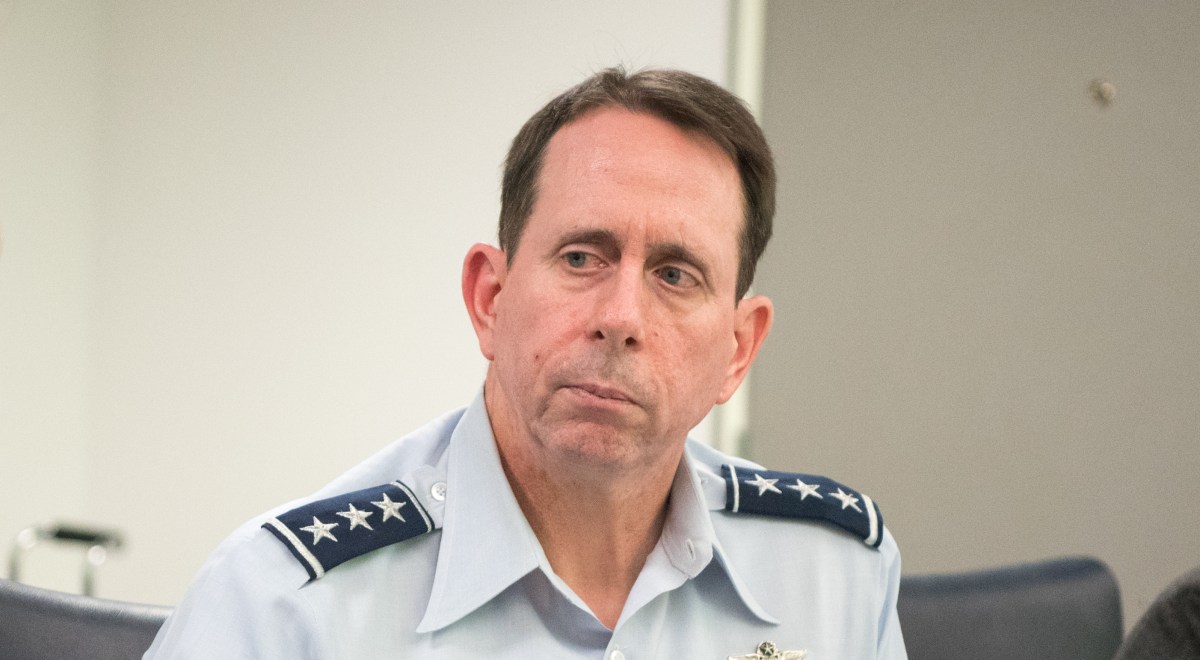JAIC leader Lt. Gen. Shanahan retiring this summer

The Pentagon Joint Artificial Intelligence Center‘s first leader, Lt. Gen. Jack Shanahan, will step down from his post and retire from the Air Force this summer, a JAIC spokesperson confirmed to FedScoop.
Shanahan will leave military service with a long career in intelligence and developing technology. He led the creation of the JAIC from its establishment in 2018 and oversaw some of the artificial intelligence center’s more controversial and pivotal moments in its infancy.
Lt. Cmdr. Arlo Abrahamson, a spokesman for the JAIC, confirmed Shanahan’s retirement is coming “this summer.”
“The search for his replacement as the JAIC director is ongoing,” he said. “He will continue his duties until he transitions from military service later this year.”
Shanahan had previously said 2020 was going to be a big year for military AI.
“I am optimistic that 2020 will be a breakout year for the department when it comes to fielding AI-enabled capabilities,” Shanahan told reporters in September.
One of Shanahan’s most high-profile moments involves Google pulling out of Project Maven, the Department of Defense‘s artificial intelligence and machine learning initiative that aims to help Air Force analysts make better use of full-motion video surveillance. But internal pressure from Google employees surrounding the ethics of the project led to the company’s withdrawal from the project.
Shanahan spoke in November to the Pentagon’s handling of Maven, saying that the narrative spun out of control after the department wasn’t as transparent about the initiative as it could be. “This idea of transparency and a willingness to talk about what each side is trying to achieve may be the biggest lessons of all that I took from it,” he said of Maven at an event in conjunction with the National Security Commission on AI’s release of its interim report.
More recently, the center has focused on maturing humanitarian tools and AI applications. This summer, the JAIC signaled progress on testing AI systems that could be used to track rapidly spreading wildfires.
The DOD and JAIC have faced criticism in recent months for lacking resources and organizational support to scale the technology across the department. A congressionally mandated report from RAND Corp. released in December posited that DOD “lacks baselines and metrics in conjunction with its AI vision” and that the JAIC needs better “visibility and authorities to carry out its present role.”
Shanahan will retire with more than 35 years of Air Force service. Before leading the DOD’s push to develop AI, he served in many other capacities, often dealing with technology. He also led teams of cryptographers, or code-breakers, for the 25th Air Force at Joint Base San Antonio-Lackland in Texas.






